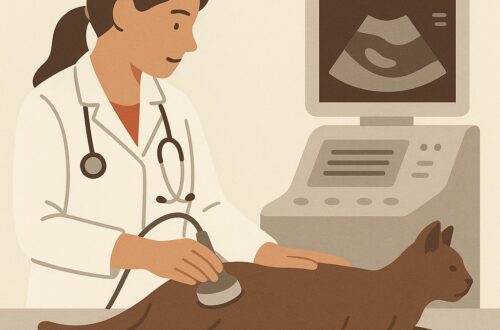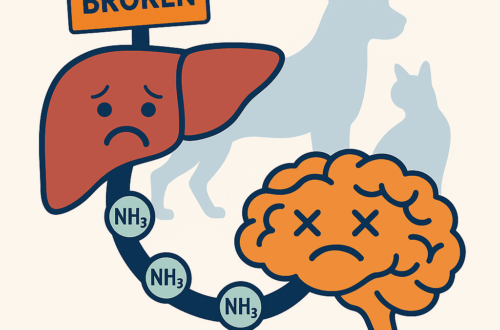Acetaminophen, the active ingredient in Tylenol®, is commonly taken by humans to help reduce inflammation and fever. Many other over-the-counter (OTC) and prescription medications contain acetaminophen too – click here to see an extensive list. Logically many pet parents believe this medication can be administered to cats for the same reasons. What these well-intentioned families don’t know is acetaminophen is highly toxic to cats, and can lead rapidly to death without aggressive treatment. Of course, we all know a cat’s curiosity sometimes gets the best of them, and many have been known to inexplicably eat a loose Tylenol® tablet too. This week I share some important information about acetaminophen intoxication, and I hope you will share it with any cat parents you know. Happy reading!
Acetaminophen – Why is it toxic to cats?
In most species, acetaminophen is predominantly metabolized in the liver and subsequently excreted in a modified form by the kidneys. Cats aren’t able to metabolize this drug in the liver as efficiently as other animals. Their unique metabolic pathways are rapidly overwhelmed. When this happens, a toxic by-product called N-acetyl-p-benzoquinoneimine (NAPQI) is formed and causes severe liver damage.
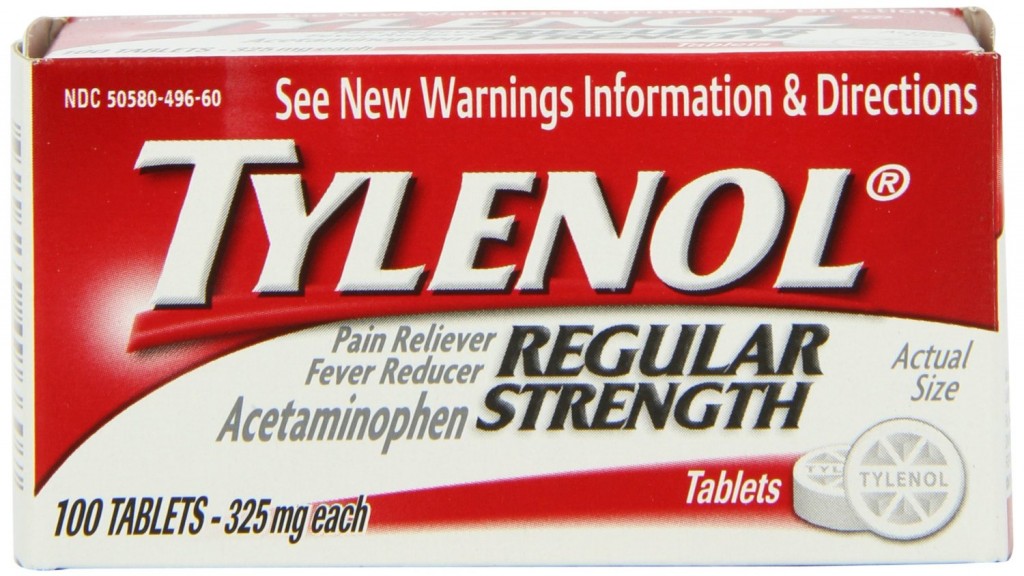
Cats also form another compound called para-aminophenol (PAP) after ingesting acetaminophen. Normally animals remove this chemical from circulation through some distinct metabolic pathways. Unfortunately, these pathways in cats are quite inefficient, predisposing this species to intoxication. Excess PAP reacts with the oxygen carrying protein in the blood called oxyhemoglobin to change it to another form called methemoglobin. Methemoglobin can’t carry oxygen around the body, so important tissues are deprived of life-sustaining oxygen.
Acetaminophen – What are signs of intoxication?
There are no known safe doses of acetaminophen in cats. Clinical signs are commonly seen at doses of 50-100 milligrams per kilogram (mg/kg) of body weight, but death has been documented at doses as low at 10 mg/kg. Common clinical signs include:
- Altered level of consciousness
- Blue-purple tinge to gums and tongue (called cyanosis)
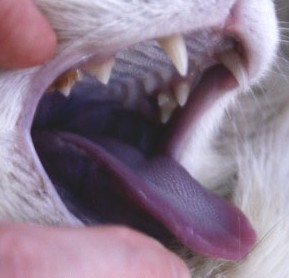
- Generalized weakness
- Elevated respiratory rate
- Elevated heart rate
- Vomiting
- Low body temperature
- Chocolate brown appearance to gums
- Swelling (edema) of the face and/or paws
- Abdominal discomfort
- Yellowing of the skin and/or “whites of the eyes” (called the sclera)
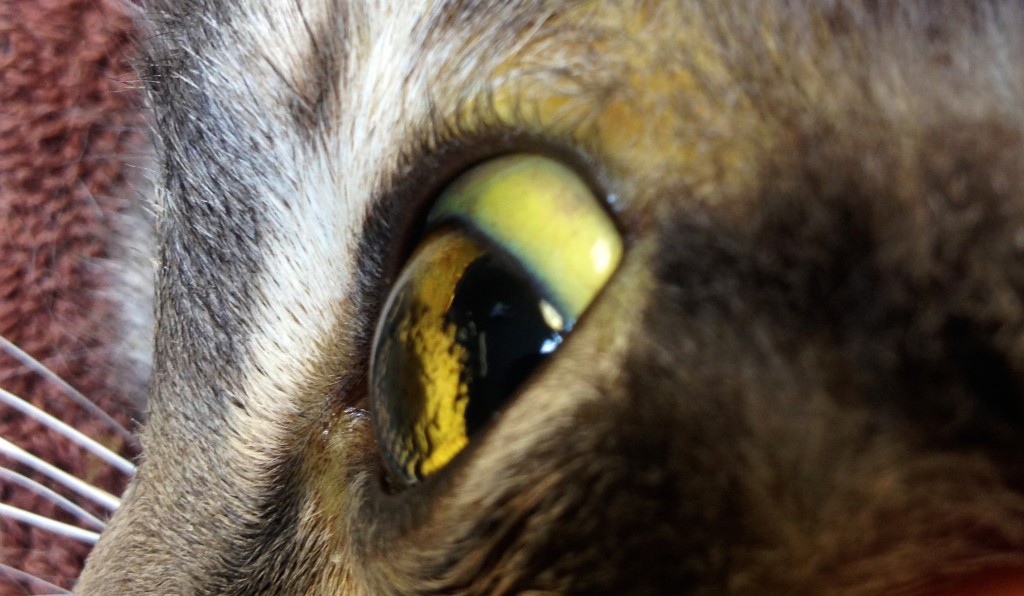
Clinical signs of methemoglobin in the blood may persist for three to four days. Liver injury often takes several weeks to resolve after appropriate medical intervention.
Acetaminophen Intoxication – How is it diagnosed?
Your family veterinarian may recommend you contact the ASPCA Animal Poison Control Center to consult with a board-certified veterinary toxicology specialist. There is a nominal fee for this service, but it is undoubtedly an excellent resource. Indeed, it’s a group with whom your pet’s veterinary healthcare team may subsequently consult during your fur baby’s treatment. A diagnosis of acetaminophen intoxication is most commonly made based on correlation of clinical signs and biochemical abnormalities with documentation of exposure to the drug. After obtaining a thorough patient history and performing a complete physical examination, a veterinarian will recommend performing some blood and urine tests:
- Complete blood count: a non-invasive blood test that gives information about red blood cells, white blood cells, and platelets
- Serum biochemical profile: a non-invasive blood test that yields data about liver and kidney function, as well as electrolytes (e.g. sodium, potassium, chloride) and some digestive enzymes
- Urinalysis: a non-invasive urine test that may show evidence of kidney injury and possible urinary tract infection
An affected pet’s blood may appear brown-tinged due to presence of excess methemoglobin in the blood.
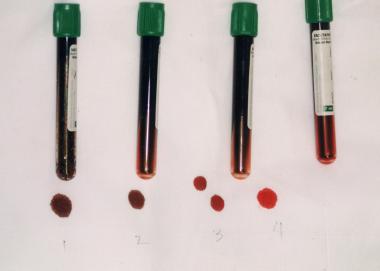
Some referral/specialty hospitals have the ability to perform a non-invasive test called co-oximetry to document the level of methemoglobinemia in blood. Elevated levels are usually documented within two to four hours of acetaminophen ingestion. Liver value changes often occur three to six days post ingestion.
Acetaminophen Intoxication – How is it treated?
Cats with suspected or confirmed acetaminophen intoxication should be immediately provided supplemental oxygen. Making cats vomit in an attempt to expel any ingested drug tablets is usually unrewarding. A veterinarian may administer special liquid medications (activated charcoal and sorbitol) if the affected cat is presented for decontamination within the first four to six hours after ingestion. Activated charcoal and sorbitol bind acetaminophen in and decrease the transit time through the gastrointestinal tract, respectively, to reduce systemic absorption of the drug.
Intoxicated cats will need to hospitalized to receive intravenous fluids, as well as appropriate vitamin and electrolyte supplementation. Cats may require a blood transfusion with type-specific packed red blood cells. Affected patients also need medications to support the overwhelmed liver metabolic pathways and promote the conversion of methemoglobin to its desired oxygen carrying counterpart, oxyhemoglobin. Therapies that may help promote these important functions are:
- N-acetylcysteine (NAC)
- S-adenosylmethionine (SAMe)
- Silymarin
- Ascorbic acid
- Mew methylene blue
Cats affected by acetaminophen intoxication are often quite ill, requiring aggressive around-the-clock critical care. Your family veterinarian will likely recommend transfer to a referral/specialty hospital so your cat can receive care from (or directed by) a board-certified veterinary emergency and critical care specialist to help maximize the likelihood of a positive outcome. The prognosis for cats with acetaminophen intoxication appears to be dependent upon the dose ingested and the time passed before initiation of decontamination efforts and supportive care. In a study of acetaminophen-intoxicated cats, survivors were generally treated within 14 hours while non-survivors were not treated until 17 hours or more after intoxication.
The take-away message about acetaminophen and cats…
Acetaminophen found in Tylenol® is extremely toxic to cats. Ingestion can cause serious liver injury and damage to red blood cells that prevents adequate delivery of oxygen to vital organs. Decontamination therapies should be started as soon as possible after ingestion. Affected pets often require around-the-clock care in a referral/specialty hospital, and partnering with board-certified veterinary toxicologists and emergency/critical care specialists can help maximize the likelihood of complete recovery.
To contact the ASPCA Animal Poison Control Center and their team of board-certified veterinary toxicology specialists, please click here.
To find a board-certified veterinary emergency and critical care specialist, please visit the American College of Veterinary Emergency and Critical Care.
Wishing you wet-nosed kisses,
cgb



